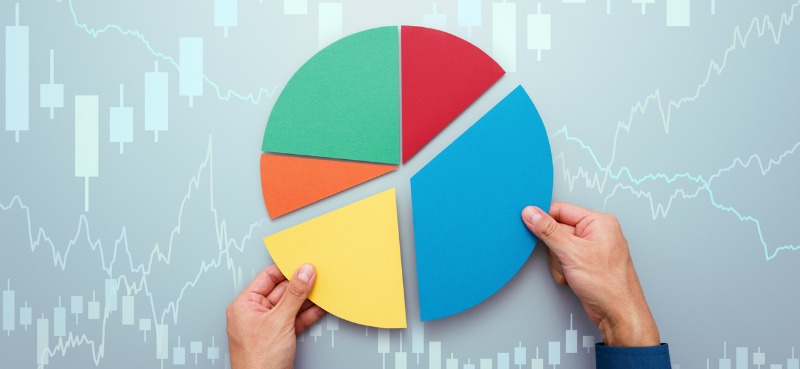There are over 2,000 cryptocurrencies listed on the popular site CoinMarketCap.
At the top of the list, you’ll find bitcoin (not really a surprise). Its market cap of over $130 billion is nearly 9 times as much as that of Ethereum, No. 2 on the list.
If you keep scrolling, you’ll find other familiar names like Litecoin and Monero… Both coins are in the top 25, but each cost significantly less than bitcoin’s roughly $7,000 price tag. For novice investors looking to open a position in cryptos, these familiar and inexpensive names can be appealing…
And the fantasy of getting in before the next big breakout… or being a part of an exciting new billion-dollar coin offering (ICO)… can be hard to resist. Unfortunately, most of the time that’s exactly what it is… a fantasy.
If you’re holding tokens outside the top 100, there’s a strong possibility they won’t exist 12 months from now. In fact, there’s a good chance some in that top 100 list won’t last either.
Most of these coins were launched through initial coin offerings (ICOs), and most are utility tokens. They give you access to a company’s product or service, and that’s it.
Unlike stocks, these tokens aren’t backed by anything. They’re not investments. This is critical for every crypto investor to understand. In fact, it’s probably the No. 1 mistake crypto investors make.
Here’s an example…
You’re probably familiar with arcade and entertainment giant Dave & Buster’s. The chain restaurant offers pub-style dining paired with bowling, arcade games, and more.
To play games at a Dave & Buster’s arcade, I need to purchase tokens. I put cash in a machine and it gives me a playing card (like a credit card) assigned a token value. This gives me access to every game at any Dave & Buster’s. I simply swipe my card at the machine, and I can play. That’s the value of the token.
Now say you bought these tokens at Dave & Buster’s in 2014. The company had only 70 stores back then. It generated $0.05 a share in profit. And its market cap was $700 million.
Fast forward about five years… Dave & Buster’s operates 128 stores. It generated over $3 a share on $1.2 billion in sales over the past 12 months and pays a 1.5% dividend.
As a token holder, the growth in Dave & Buster’s over the past five years means nothing to you. Sure, you can use your tokens at more arcades… but the value of the token didn’t increase… even though Dave & Buster’s grew its earnings by over 5,000%.
Being a token holder only allows you to use Dave & Buster’s products. They can be used to get prizes like stuffed animals and small electronics, but you don’t OWN a piece of Dave & Buster’s.
That’s how utility tokens work. Whether the company makes billions or goes bust, they offer little to no value to investors. It’s basically a means for companies to raise money—without giving away any equity or voting rights.
Investing in a utility token is not like investing in a stock. When you buy a stock, you own a small piece of a company… And if the company does well, so does your investment. When you purchase a utility token, your investment stops there.
Fortunately, there’s an alternative. And it’s backed by equity and assets… can pay dividends… gives investors voting rights… and trades just like a stock…
I’m talking about security tokens.
Security tokens have the same advantages as cryptocurrencies—like using blockchain technology to create a secure, easily transferable token with the potential for additional benefits.
But these tokens offer investors ownership in an asset… anything from shares of a company… to real estate property… and even a Ferrari or professional athlete.
Plus, security tokens can offer legally enforceable rights. This may sound complicated, but it’s important to understand. The goal of security tokens is to combine the best parts of cryptocurrencies (the technology) with the best parts of regulated securities (legal rights).
The latter is key… Since security tokens are backed by actual assets, they fall under the regulation and oversight of the SEC. That means you have certain legal rights as a security token investor. (Because of these benefits, we’ve even launched our own STO, Curzio Equity Owners.)
Most importantly, you have a right to participate in the company’s profits. You also have the right to receive dividends paid to shareholders.
These rights are a critical source of value for investors… and they cannot be found in more than 99% of utility tokens.
Sure, the recent boom in crowdfunding proves that some people are willing to give money to a business without any promise of financial gain. But most investors want to make money on their investment.
Experienced investors should demand more than promises from a fast-talking executive about the future of a company.
Good investing,

 | Frank X. Curzio Founder and CEO, Curzio Research |
–
Editor’s note: With thousands of tokens to choose from, investing in cryptos can be nerve-wracking…
But as a subscriber to Frank’s Crypto Intelligence service, you’ll get a front-row seat to the opportunities available in the digital securities market… including access to new and promising security token offerings (STOs)… as well as the kind of insight and education only Frank can provide.
It’s a direct line to expert crypto market intelligence… in-depth industry research… and crypto investment ideas you’ll rarely find anywhere else. If you’re not already a subscriber, click here to learn more.
Originally published by The Token Tracker.























